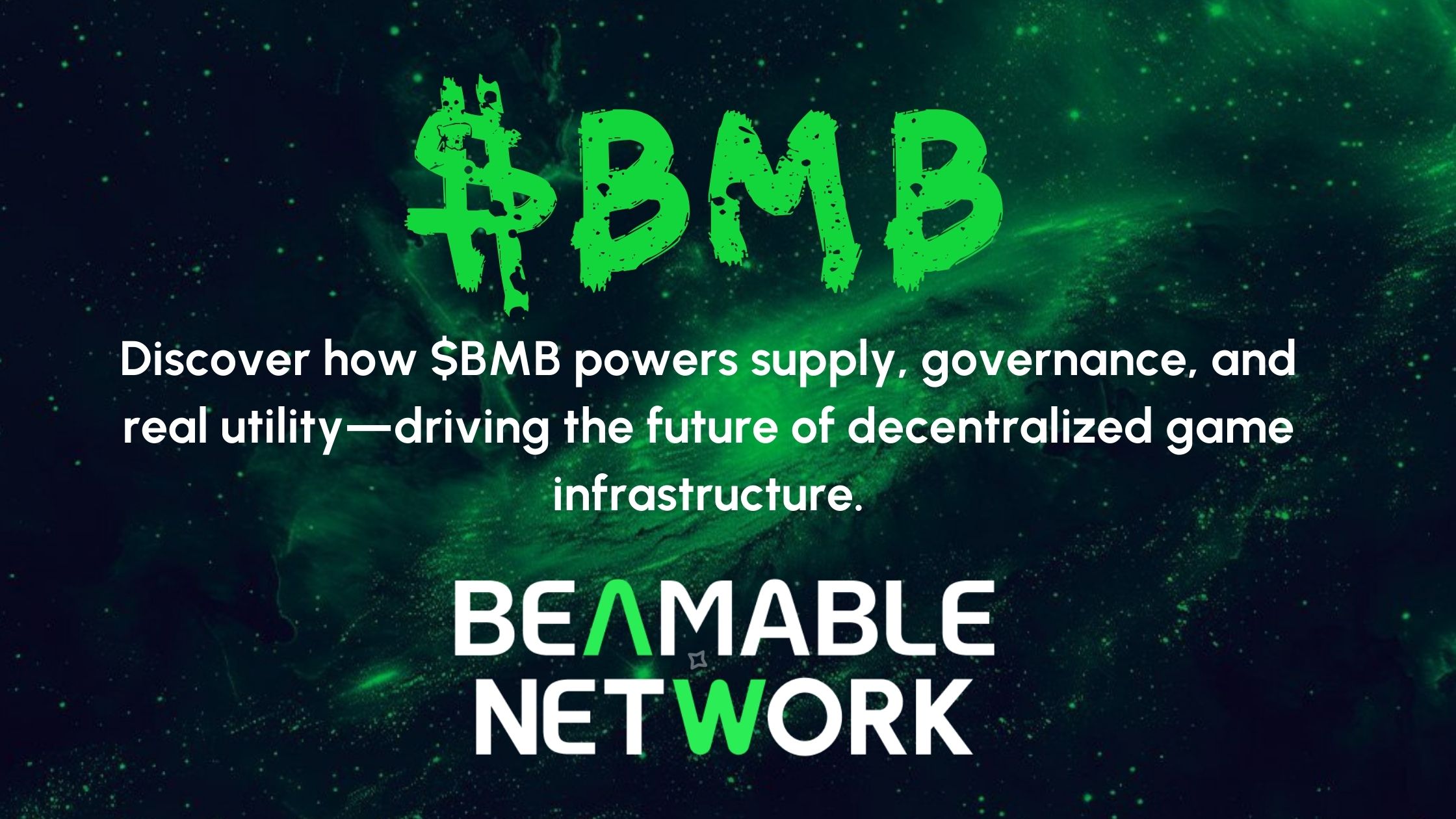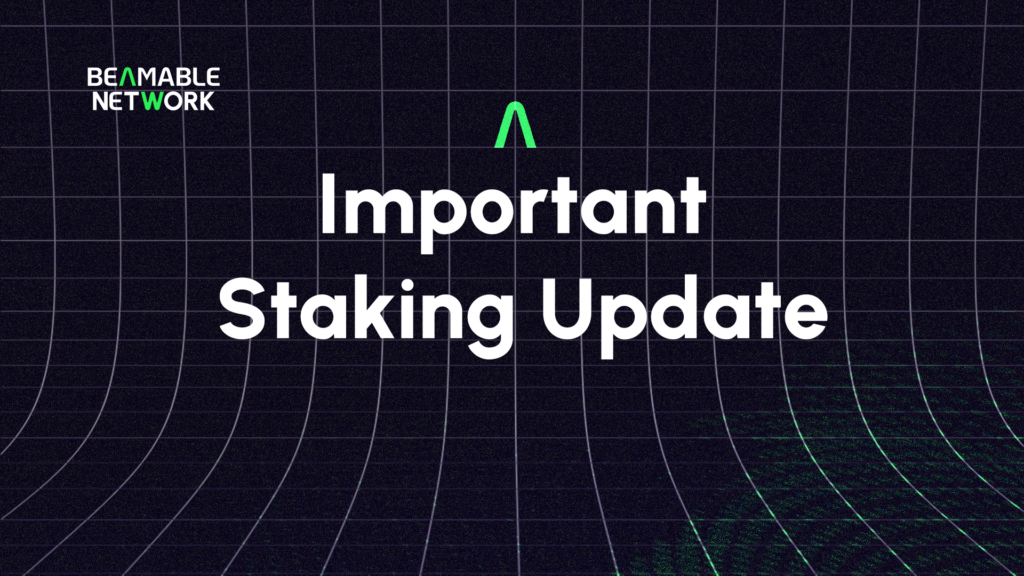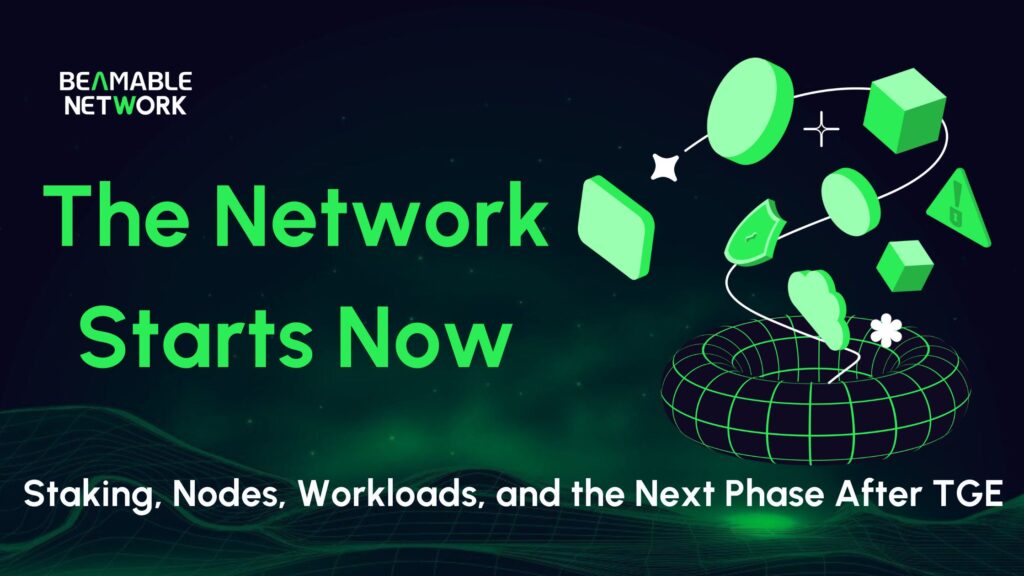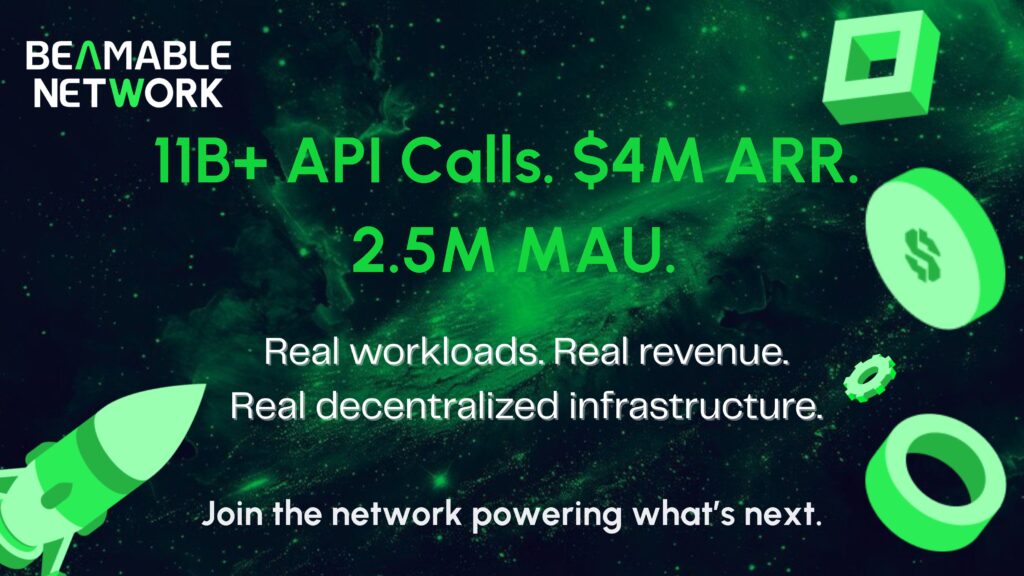The way games are built is changing. Centralized cloud platforms lock developers into rigid contracts, unpredictable costs, and single points of failure. Players feel that fragility when servers go down, when live events stumble, or when studios are forced to compromise.
Beamable.Network was created to flip that model—replacing expensive, centralized services with a decentralized, community-powered infrastructure designed for the realities of live games. At the center of that shift is the $BMB token.
$BMB isn’t just another digital asset. It’s the connective layer that makes the network work: regulating supply, enabling developers and operators to guide governance, and powering the very workloads that drive live games. In short, $BMB is built for real utility and long-term sustainability, not speculation.
Supply: Built for Predictability and Scale
The supply of $BMB has been designed to align with network growth rather than short-term hype. Key principles include:
- Maximum Supply: $BMB is capped, ensuring predictability in the system. No inflationary surprises.
- Scheduled Unlocks: Allocations to community, early contributors, node operators, and the foundation follow a transparent release schedule tied to network milestones.
- Usage-Linked Emissions: New tokens enter circulation through node emissions that reward Checker and Worker nodes for validating and executing workloads. This means distribution scales as demand for infrastructure increases.
- Corrective Mechanisms: Transaction fees and penalties for node misbehavior recycle tokens back into the system, creating balance over time.
This approach ensures that the circulating $BMB supply grows in step with adoption, helping developers and operators plan for the long haul.
Governance: Developers in the Driver’s Seat
Beamable.Network is more than infrastructure—it’s a shared ecosystem. Governance ensures those who build and operate on the network also help steer it.
- Community Proposals: $BMB holders can introduce and vote on proposals that shape the roadmap, technical priorities, and ecosystem funding.
- Node Operator Role: Governance participation extends across the network’s three node types—Checker, Worker, and Router. Worker and Router Nodes stake $BMB to secure the network and validate workloads, while Checker Nodes focus on verification without requiring staking. This ensures governance reflects the perspectives of all critical participants.
- Foundation Oversight: A portion of $BMB is allocated to the Beamable Foundation, which manages developer grants, security reviews, and ecosystem support under community direction.
- Progressive Decentralization: Governance starts with clear safeguards to ensure stability and reliability but gradually transitions to a community-led model.
This structure gives builders and operators a direct voice in how the network evolves—without ceding control to a single entity.
Utility: Designed for Real Work
From the beginning, $BMB was designed to solve practical problems for developers—not as an abstract token without a role. Its utility includes:
- Infrastructure Access: Developers use $BMB to pay for backend services—matchmaking, leaderboards, player data storage, live events, and more.
- Node Staking and Delegation: Node operators stake $BMB to validate workloads. Community members can delegate tokens to Worker nodes, supporting compute providers while sharing in rewards.
- Transaction Settlement: Workload execution, event triggers, and persistent services across the network all settle in $BMB.
- Ecosystem Growth: Developers who contribute tools, modules, or integrations may be supported with $BMB through grants or incentives.
- Future Possibilities: As adoption grows, game studios may integrate $BMB into player-facing systems. That’s roadmap, not launch-day.
Every time a workload runs or a service spins up, $BMB is doing the work behind the scenes—making infrastructure costs predictable and tied directly to use.
Fueling the Next Era of Games
The future of live games won’t be built on yesterday’s cloud. Developers need infrastructure that scales on demand, adapts to player behavior, and frees them from vendor lock-in. That’s exactly what Beamable.Network delivers.
With $BMB at its core, the network balances sustainable supply, participatory governance, and clear utility to create a system that rewards builders, empowers operators, and supports the players who depend on reliable live games.
Beamable.Network isn’t just theory—it’s already proven by billions of API calls and millions of players from Beamable’s SaaS platform. $BMB extends that traction into a decentralized ecosystem where innovation isn’t limited by cost, control, or scale.
The bottom line: $BMB isn’t about promises of future value. It’s designed as the engine to power real workloads for real developers as the network comes online.
Join the conversation and help shape the future of decentralized game infrastructure:



